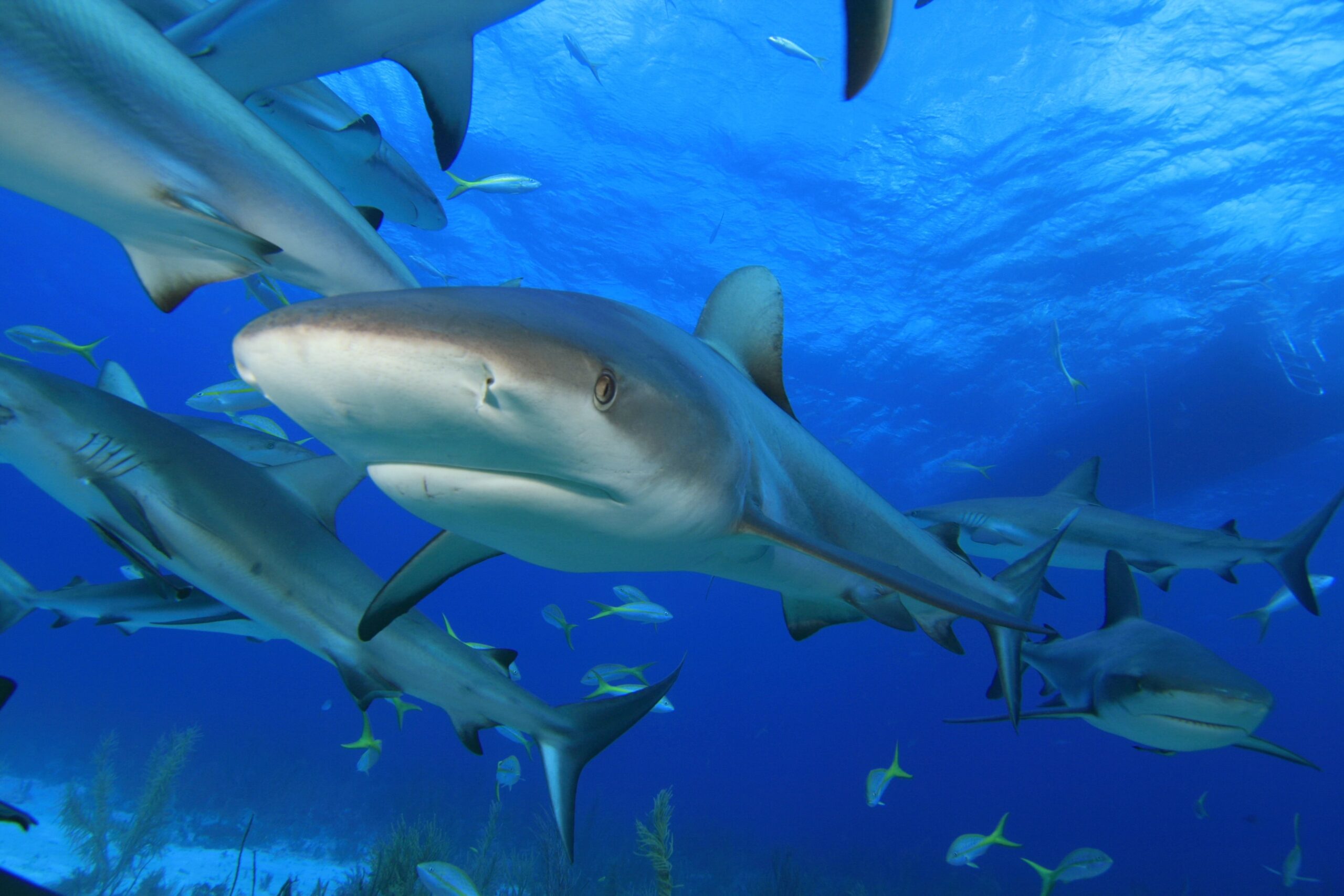Per the International Union for Conservation of Nature (IUCN), roughly one-third of shark species are at risk of extinction due to factors like overfishing and climate change. Other endangered animals — for example, land mammals like polar bears and mountain gorillas — can be monitored by conservation experts. But sharks present a bit of a mystery, roaming the darkest depths of the sea and evading would-be observers. Fortunately, researchers at institutions across the United States are in the process of building a game-changing tool: the world’s largest open database of shark sightings. Called SharkPulse, the tool uses artificial intelligence (AI) to scan online sources for shark photos, building on existing sightings. Read on for more information on the research behind the tool, which is published in Fish and Fisheries.
AI Tool Empowers Citizen Scientists and Experts Alike
Sharks remain largely shrouded in mystery due to limited understanding of their behavior, migration patterns, and genetics. While researchers still have a long way to go in the genetic realm, the new SharkPulse tool — complete with automatic location data, timestamps, and species identifications driven by “citizen science” — could help conservationists better understand migration patterns and behavior.
How SharkPulse Harnesses AI
Per the research paper, SharkPulse is “designed to complement and extend similar biodiversity monitoring tools” by sourcing “large streams of online shark images” to fill knowledge gaps in shark ecology. The tool is automatic and AI-driven, which reduces the time researchers have to spend manually uploading images. However, it does still rely on the participation of citizen scientists to help train its AI models.
First, the platform automatically collects shark photographs and videos from online sources. The images are then validated by both members of the public and experts. Once the images are validated, they are added to a searchable public database, essentially “turning everyday digital activity into conservation data,” according to Francesco Ferretti, the study’s lead author.
“An Unprecedented Stream of Images”
At the time the research paper was published (August 11, 2025), SharkPulse had validated more than 91,000 records across 285 shark species. That encompasses nearly 53 percent of known species, per the researchers. The tool has also contributed valuable insights into shark habitats — for example, identifying a previously unknown white shark hub in the Mediterranean. This information may be used to map shark populations, track changes, and devise a plan to protect shark species worldwide. “With cameras in nearly everyone’s hands, our encounters with the ocean are being recorded more than ever,” said Jeremy Jenrette, an author on the project. “SharkPulse taps into this unprecedented global stream of images and videos, using AI and data science to passively monitor shark populations at a scale never before possible.”
_____
The SharkPulse researchers are just getting started. In the future, they hope to implement multilingual data mining and international partnerships to broaden shark knowledge around the globe, serving as a global monitor of sorts. The technology could also be adapted to serve other species — even those on land.
Did you enjoy this blog post? Check out our other blog posts as well as related topics on our Webinar page.
QPS is a GLP- and GCP-compliant contract research organization (CRO) delivering the highest grade of discovery, preclinical, and clinical drug research development services. Since 1995, it has grown from a tiny bioanalysis shop to a full-service CRO with 1,200+ employees in the US, Europe, Asia, India and Australia. Today, QPS offers expanded pharmaceutical contract R&D services with special expertise in pharmacology, DMPK, toxicology, bioanalysis, translational medicine, cell therapy (including PBMCs, leukopaks and cell therapy products), clinical trial units and clinical research services. An award-winning leader focused on bioanalytics and clinical trials, QPS is known for proven quality standards, technical expertise, a flexible approach to research, client satisfaction and turnkey laboratories and facilities. Through continual enhancements in capacities and resources, QPS stands tall in its commitment to delivering superior quality, skilled performance and trusted service to its valued customers. For more information, visit www.qps.com or email info@qps.com.





